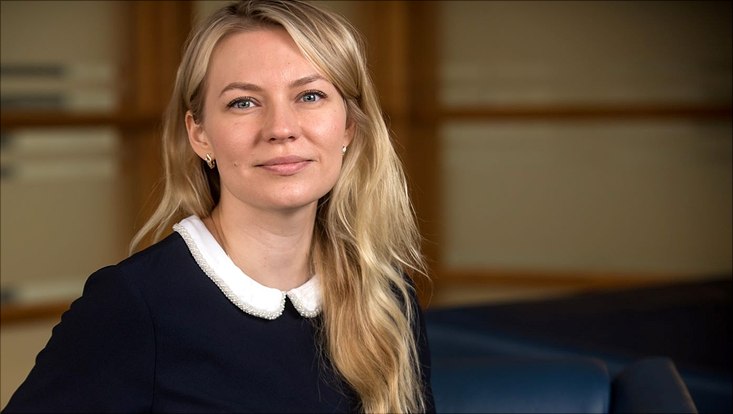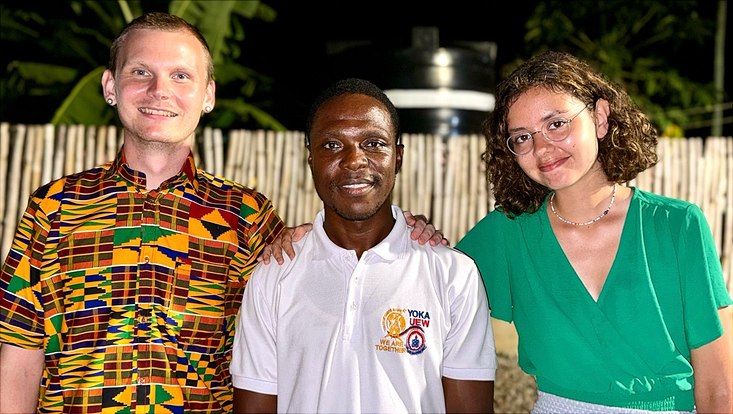Postdoctoral Fellowships funding program for legal scholar“International marine protection regulations can sometimes be tricky”
21 October 2021, by Christina Krätzig

Photo: privat
For the second time, Universität Hamburg has awarded 4 fellowships to outstanding early career researchers, including the legal scholar Dr. Ekaterina Antsygina. Antsygina is studying the gaps and loopholes in the protection of cold water corals and other sedentary species on the ocean’s floor.
Who is permitted to exploit hidden raw materials on the ocean floor? To whom do fish, shellfish, and corals belong? And who decides whether to allow fishing in certain regions or to establish a protected area for flora and fauna? “The latter question has not been answered for all maritime zones,” explains legal scholar Dr. Ekaterina Antsygina. “Every coastal nation is free to exploit and conserve all of the resources within 200 nautical miles. Beyond that, however, it gets tricky, especially for sedentary organisms such as corals and sponges.”
Generally, the rights and obligations of coastal nations are governed by a complex network of international agreements. Beyond the 200 nautical miles zone, the waters belong to the high seas, where all nations enjoy freedom of navigation and fishing, but coastal states can assert rights over the continental shelf beyond 200 nautical miles if their landmasses continue into the sea.
In this case, the country has exclusive exploration and exploitation rights for the living and non-living resources of the shelf. The country is therefore allowed to exploit the mineral resources, but not the fish stocks, because the fish do not live on the shelf, but swim in international waters. The situation is uncertain for sedentary species, who live immobile on or under the seabed or can move only slowly, always attached to the seabed (for example, sponges). These organisms are extremely important for the ecosystem but may be quickly destroyed by trawling nets. Yet international law does not clarify whether a coastal state can impose protection regulations to conserve them beyond 200 nautical miles. This is the conclusion that Antsygina drew in her earlier work.
With the funding, Universität Hamburg—University of Excellence has now enabled Antsygina to spend the next 3 years focusing on this gap in the law of the sea. She aims to develop recommendations for coastal nations with regard to navigating this uncertainty. To do this, she will look at how 8 fishing nations have handled the problem, as lawyers and jurists often look at so-called customary law when the treaty provision is unclear. She will look at her native country of Russia, countries such as Canada and the United States—where she has lived and worked—and Japan, Norway, and Portugal, among others.
The Faculty of Law at Universität Hamburg is supporting her work. The law of the sea and international law are two of the faculty’s focal areas, while Law in Global Contexts is one of the University’s emerging fields and thus one of the areas that should ideally become one of its core research areas or even its own cluster of excellence.
The newly created Postdoctoral Fellowships funding program supports outstanding early career researchers from Germany and abroad working at the University who wish to prepare for the next stage of their career. This can involve leading an early career researcher group or an appointment as a junior professor. They receive a substantial budget for materials: €20,000 annually for a 3-year period. Funding comes from the Excellence Strategy of the Federal and State Governments.


